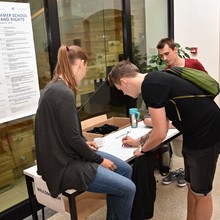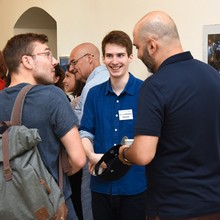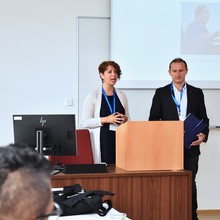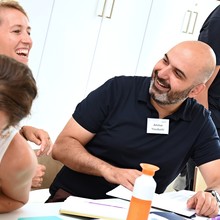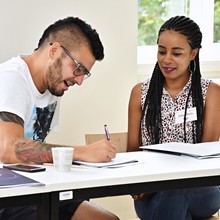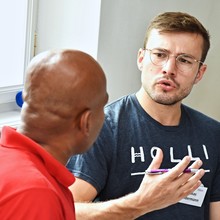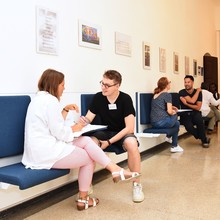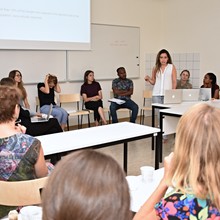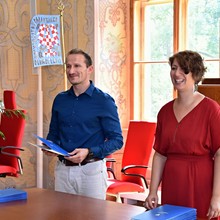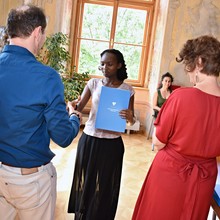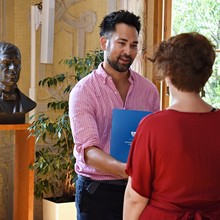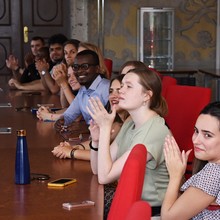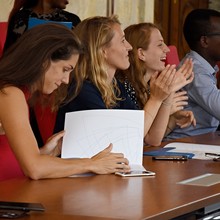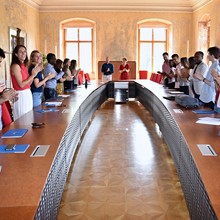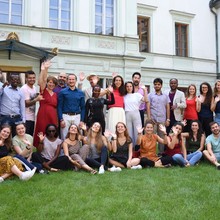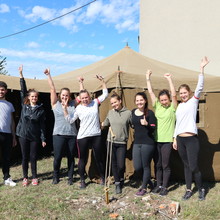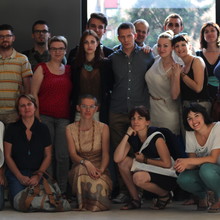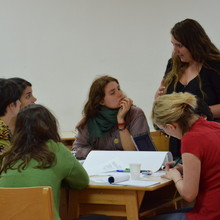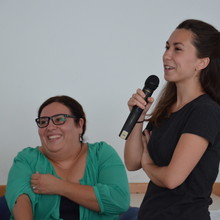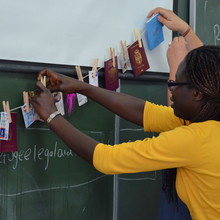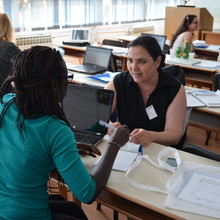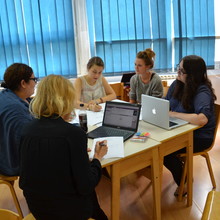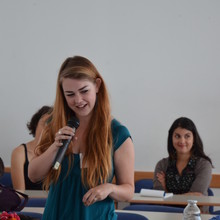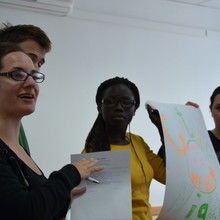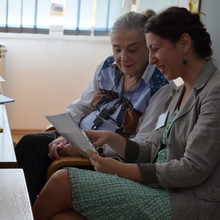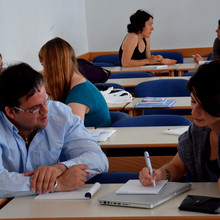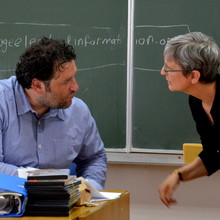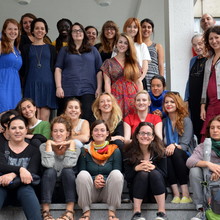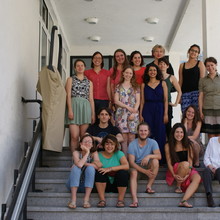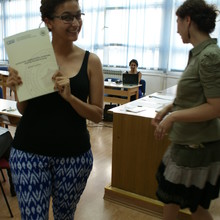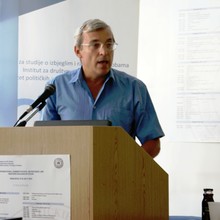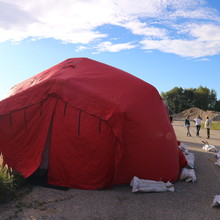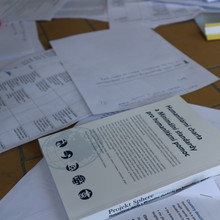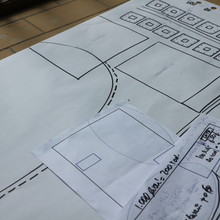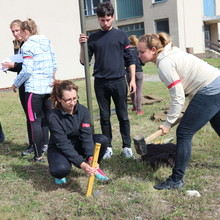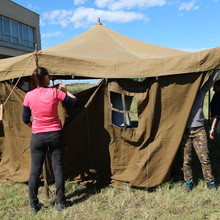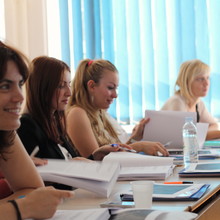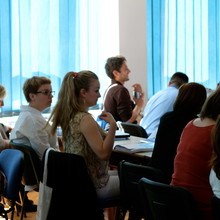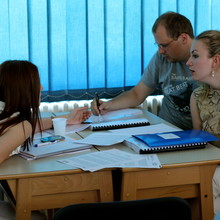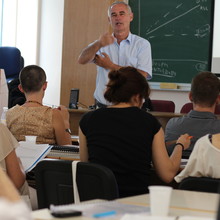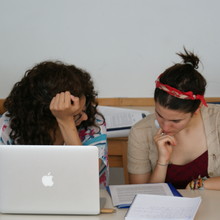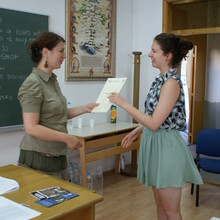International Summer School in Refugee Law and Rights

About the school
Join us for the 10th International Summer School in Refugee Law and Rights founded in 2012 by Dr Selma Porobić with late OBE Prof. Emerita Barbara Harrell-Bond from the University of Oxford. The school is modelled according to international summer schools initiated by late professor Harrell-Bond in the 1980s as pioneering refugee law training for humanitarians.
We bring together leading academics and practitioners focusing on both theoretical and practical aspects of legal refugee protection, to proactively contribute to its advancement through future careers in academia, UN, governmental and non-governmental organizations, media and other sectors of work. Our goal is to advance legal protection skills and to enhance collaboration in responding to the current challenges of international refugee protection in Europe and globally.
Due to the Russian Federation's aggression on Ukraine and the ongoing war with massive-scale displacement of civilians, our school for the second year in a row will be co-organised and donated to V.N. Karazin Kharkiv National University in Ukraine – Aurora Alliance Associated partner university. The school offers a 10-day hybrid training programme and is hosted by Law Faculty at the Palacky University Olomouc.
Summary
- When: August, 14th – 24th, 2023
- Registration deadline: June 15th
- Credits: 3 ECTS
- School fee: 500 EUR (*donation contribution)
Organiser: Aurora Alliance Office and Faculty of Law, Palacký University Olomouc with International Office, V.N. Karazin Kharkiv University.
Applicants
The school is open to professionals from different backgrounds and students of all academic disciplines. Our participants typically include staff from the international refugee and humanitarian organisations, regional and local NGOs, government officials working on refugee protection, students, scholars and researchers focusing human rights and forced migration as well as practicing or aspiring lawyers, journalists and activists.
Learning environment
The Summer School employs interactive learning environment using a combination of lectures, documentary films, debates and open discussions, enabling participants both to contribute to and gain an in-depth knowledge of legal frameworks and procedures for accessing refugee/IDP rights in practice. Instructors are experienced and committed scholars, practitioners and activists in the field and bring a comparative and locally focused perspective to the international protection debate. For the ONLINE participation in the course we use university licensed MS Teams platform with exclusive access to combination of live streaming classes and instructions, self-study assignments, interactive online seminars and group work interactions during the the school.
Content and training
Just as last year (see the 2022 School Report here), this year’s school is fully adapted to focus on mass displacement and protection of civilians affected by the developing war situation in Ukraine. Besides the introduction to International Humanitarian Law, Refugee law and Human rights law, we will also focus on the European asylum law and Temporary Protection Directive as well as Ukrainian refugee protection and rights in the neighbouring reception countries of Central-Eastern Europe. In addition, we will investigate protection of internally displaced persons in Ukraine and vulnerable categories and focus on the mental health of displaced and war-affected civilians in Ukraine. The school will be co-thought by international experts from international humanitarian organisations, Aurora universities and V.N Karazin Kharkiv National University in Ukraine.
Programme
The training programme this year will cover the following modules:
I - General part
- Assessment of the 1951 Refugee Convention and 1967 Protocol
- UNHCR Guidelines on the Application in Mass Influx situations of the Exclusion Clauses
- International Humanitarian Law - Human Rights law - Refugee Law Intersection
- The Ethics of International Refugee Law
- Prevention of arbitrary displacement in situations of armed conflict and generalized violence
- Internally Displaced Persons’ Rights to Protection
- Durable solutions and rights-based return
II - Regional focus / Europe and Ukraine Mass Displacement Response
- Legal Framework for EU Refugee Responses and the Changing Paradigm of EU Asylum Law
- The Temporary Protection Directive and Refugee Rights
- Refugee Reception and Integration Rights across Europe
III - Case Study focus – Ukraine and Humanitarian Emergency Responses
- Displacement as Humanitarian Emergency: Coordinated Aid Delivery to Ukrainians
- Health in Emergencies: Mental Health Needs and Medical Care available
- Protection of Vulnerable persons among the war-displaced categories
Instructors
School Instructors:
- Dr. Selma Porobić, Aurora Alliance, Palacký University Olomouc, Czech Republic; Hon. Research Fellow, Institute of Education, University College London, UK
- Dr. Kirsten McConnachie, Professor of Socio-Legal Studies, School of Law, Associate Dean of Postgraduate Research, Faculty of Social Sciences, University of East Anglia, UK
Guest speakers:
- Dr. Madalina Moraru, Assistant Professor, the Centre for Judicial Cooperation, European University Institute, Italy
- Dr. Marko Szilveszter Macskovich, Registration and Management Officer, United Nations High Commissioner for Refugees, Ethiopia
- Eva Bouzas Garcia, Senior Inter-Agency Coordination Officer, United Nations High Commissioner for Refugees, Switzerland
- Dr. Maxim Tomoszek, Assistant Professor of Constitutional Law, Faculty of Law, Palacký University Olomouc, Czech Republic
- Dr. Olga Filippova, Associate Professor, School of Sociology, V.N. Karazin Kharkiv National University; Project Researcher, Karelian Institute, University of East Finland
- Dr. Valeriy Reznikov, Associate Professor, Dean of the School of International Economic Relations and Travel Business, School of International Economic Relations and Travel Business, V.N. Karazin Kharkiv National University, Ukraine
- Dr. Olena Muradyan, Associate Professor, Dean of the School of Sociology, V.N. Karazin Kharkiv National University, Ukraine
- Dr. Oleksandra Deineko, Associate Professor, School of Sociology, V.N. Karazin Kharkiv National University, Ukraine; Guest Researcher Norwegian Institute for Urban and Regional Research, Oslo Metropolitan University, Norway
- ROMODROM, Prague, Czech Republic
Admission fee
The admission fee of 500 EUR covers full school program with special evening events, food and refreshments, school materials and tutoring during the 10days‘ hybrid training.
For Karazin students schools is free of charge and no admission fees are applicable. Please contact Karazin Universities International Office and Olha Pieshkova grants@karazin.ua for more information.
For Aurora Alliance students, 5 spots with fee waiver and mobility funds to cover travel and accommodation are available. Contact your local Aurora offices for more information after successful school application.
Admission fee discount is available for selected students. For more information contact Radana Kuncova (radana.kuncova@upol.cz) at the Faculty of Law.
All the school profits are part of ongoing Aurora Alliance fundraising for V.N Karazin Kharkiv National University.
How to apply
We invite you to register by sending the completed Application form together with the Motivation letter, CV (2 pages), and your passport copy to aurora.up@upol.cz before the 15th of June, 2023.
REGISTRATION DEADLINE: June 15th 2023.
Previous schools
- 2022 Report of Summer School (PDF)
- 2019 Report of Summer School (online)
- 2018 Report of Summer School (PDF)
You can also take a look at previous schools’ documentation and picture archives.
School PR
About Olomouc
Student comments & references
Guillermo Beccaría (international relations student, Belgium)
What I experienced in Olomouc during the 10 days of the ISS was just UNBELIEVABLE. I have no words to describe it. I was expecting to learn about refugees and the laws that protect them, but instead I learned about life and its meaning. I understood the significance of the “being pasionate” in a lot of aspects, and how to be it too! You have to feel it! I guess that passion of the lectures of the ISS was undoubtedly inherited from the profesor Barbara Harell-Bond. I will always be gratefull for getting that feeling too, even if it was for that small amount of time.
Ana Kozina (law student, Croatia)
I came to school with just basic knowledge of the subject, and that was mostly from the EU perspective. In 10 intensive days, I learned so much from interesting, knowledgeable lecturers with expertise and experience, who, above everything, were passionate about transferring us knowledge and skills that one day we may be the ones who can use it in our respective fields of work to be of help to those who need it. Diversity of participants, who were of law, social work, anthropological or international political background, equally students and practitioners, ensured variety of ideas, views and possible solutions to a problem to be heard. One day simulation of a refugee crisis was for all of us interesting, challenging and inspiring experience. All the members of the organizational board and volunteers were open to any of our questions, helpful and friendly. I am sure that from all my comments you can guess that I wholeheartedly recommend ISS to any future participant!
Ketevan Svanadze (sociology student, Georgia)
Thank you for the amazing ten days! I have benefited and learned so much, I feel that I have a much better understanding of refugee law and this school has influenced my views and opinions about this topic. Many interests and ideas for future studies have been provoked in my mind during the summer school! Thank you very much!
Anusha Ravishankar (law student, India)
I can't thank you and Marko enough for being absolutely wonderful influences on me. Prof. Lang had a great structure to her lectures. The courses that followed her lecture complimented the areas she covered. Well, it was like milk and honey. I believe that you guys will continue to inspire more and more students along the way.
